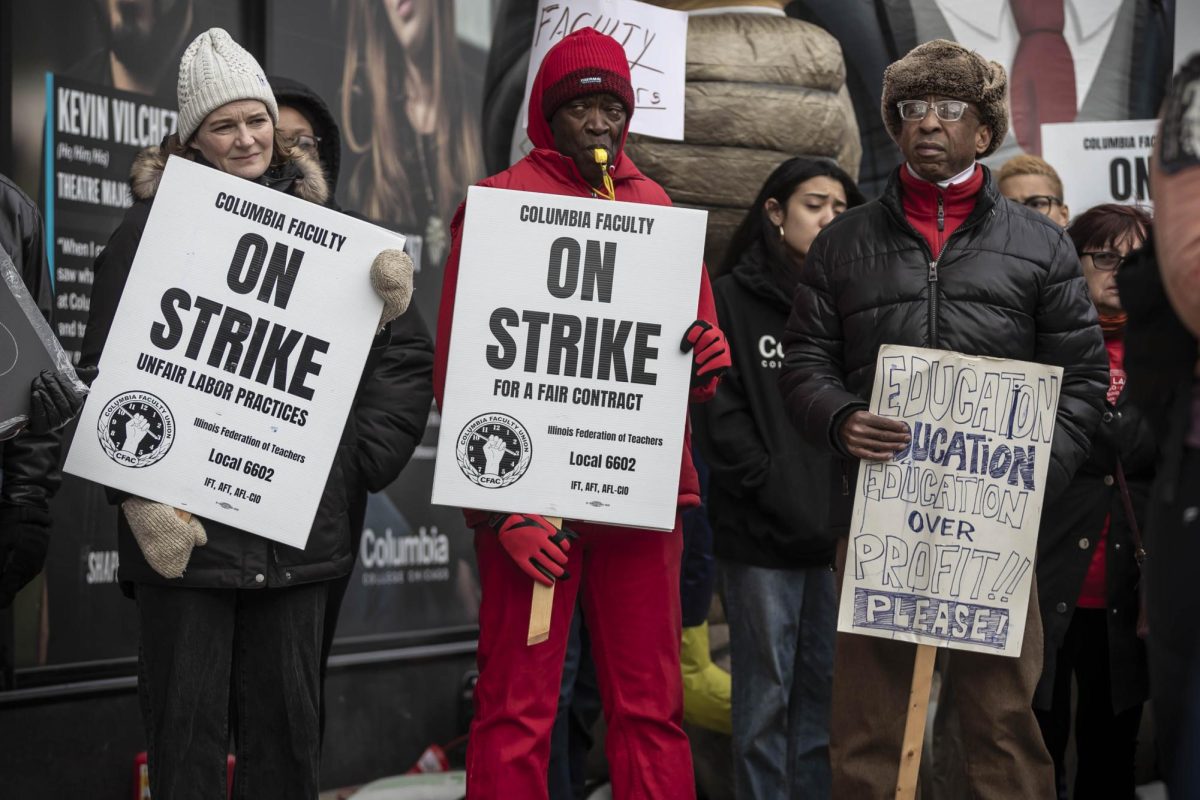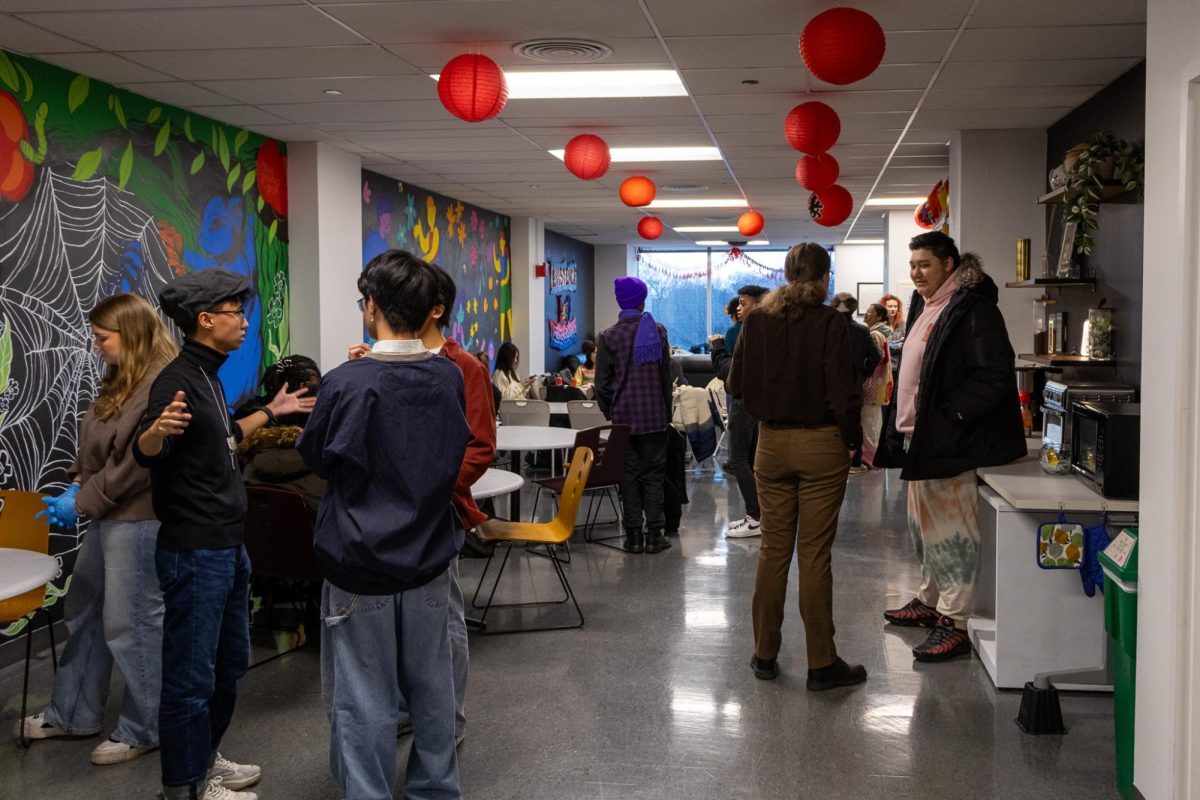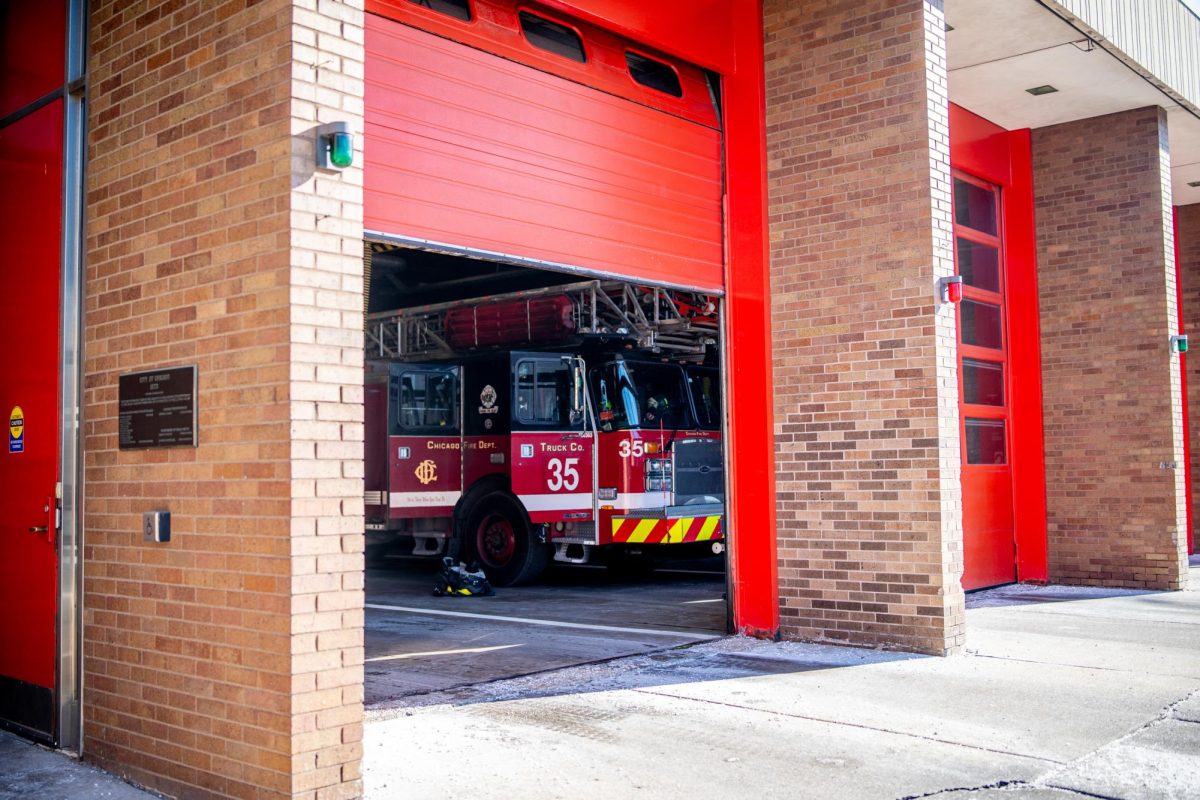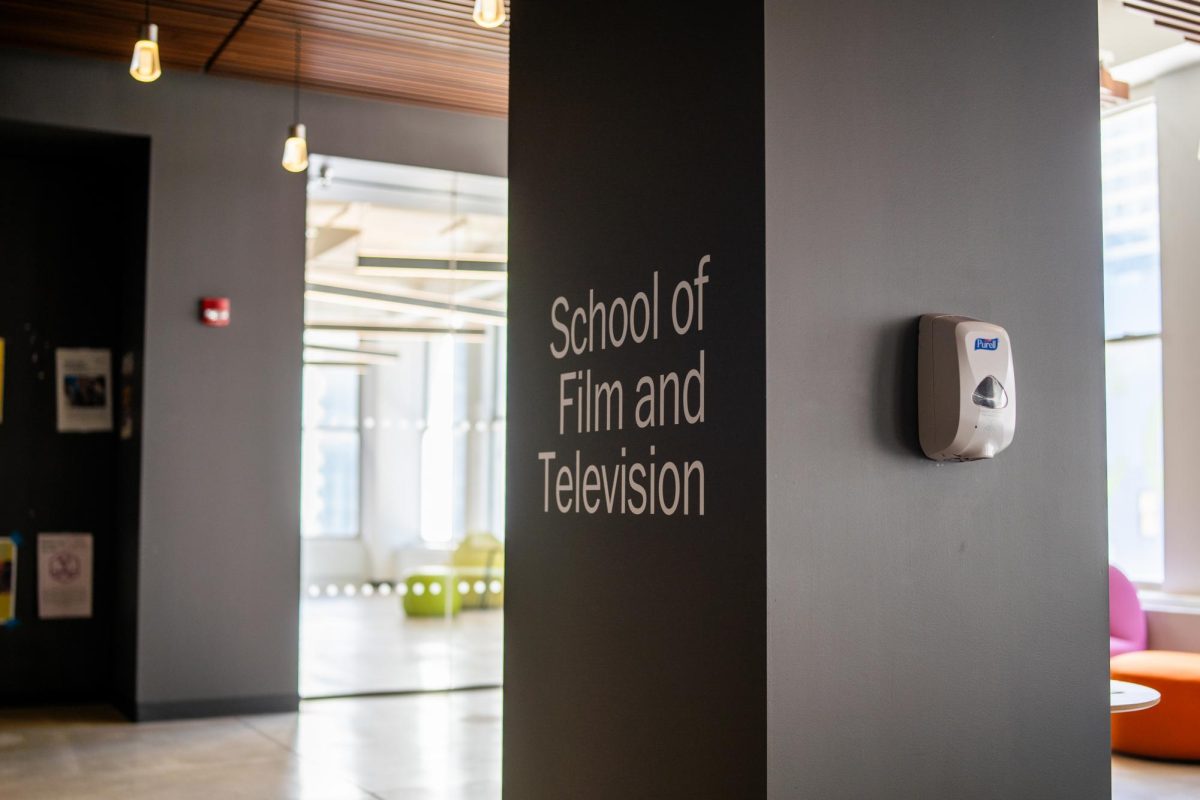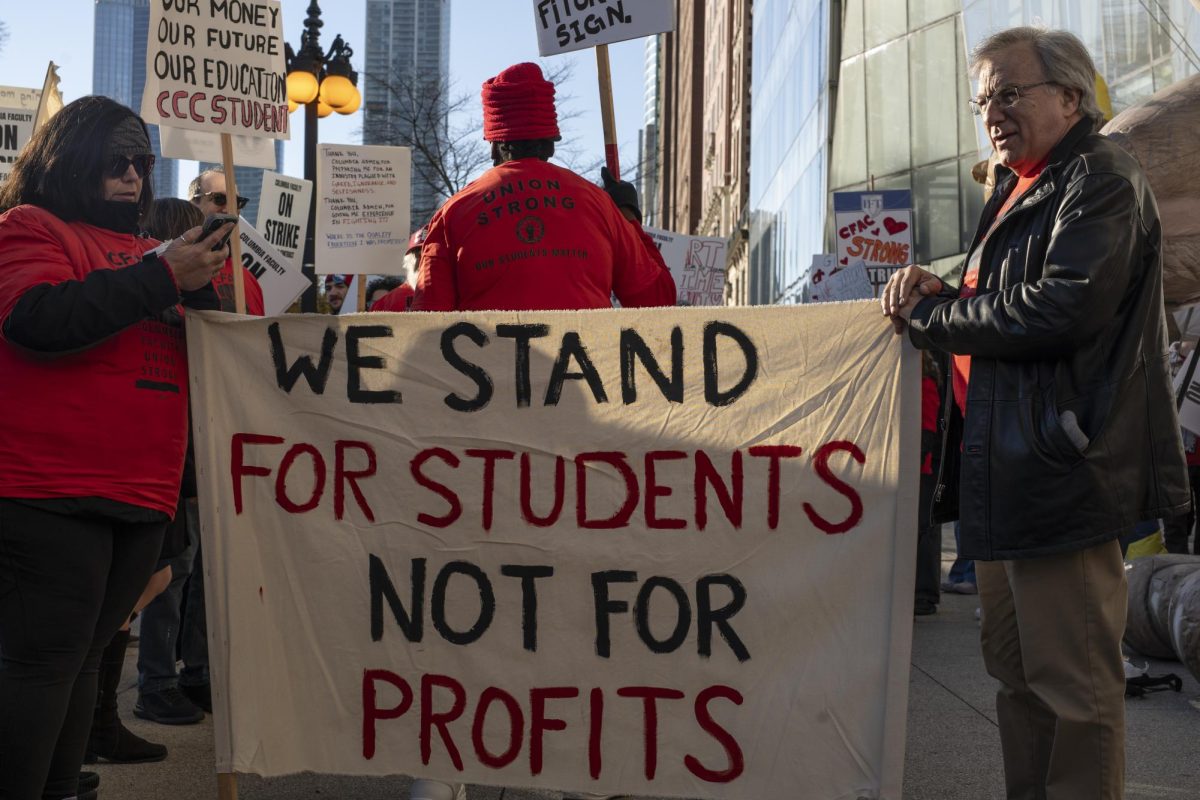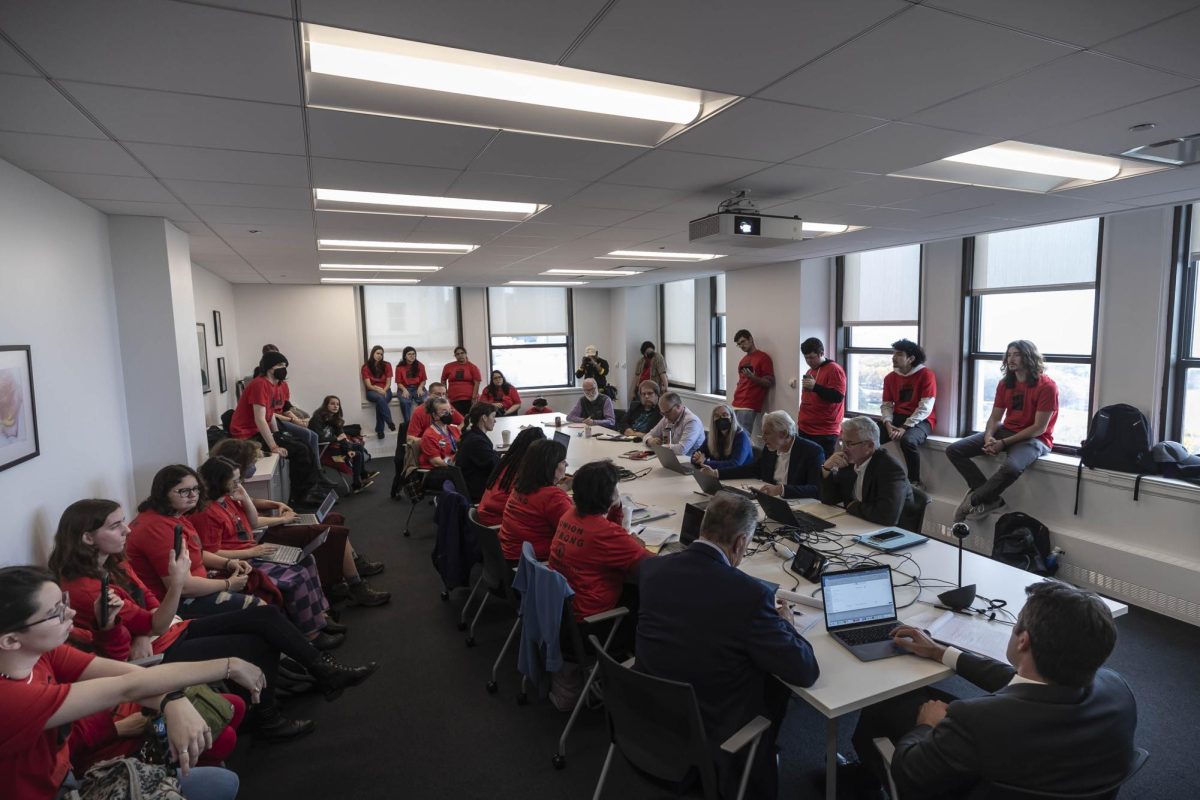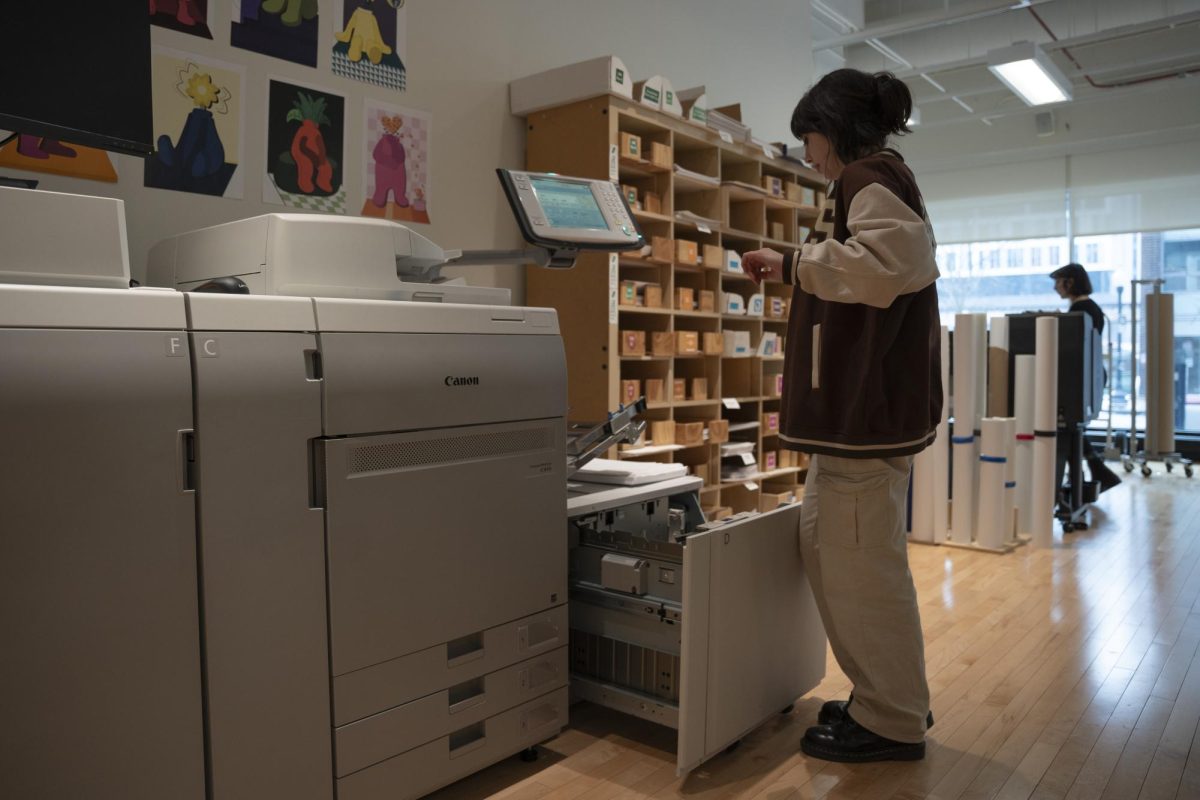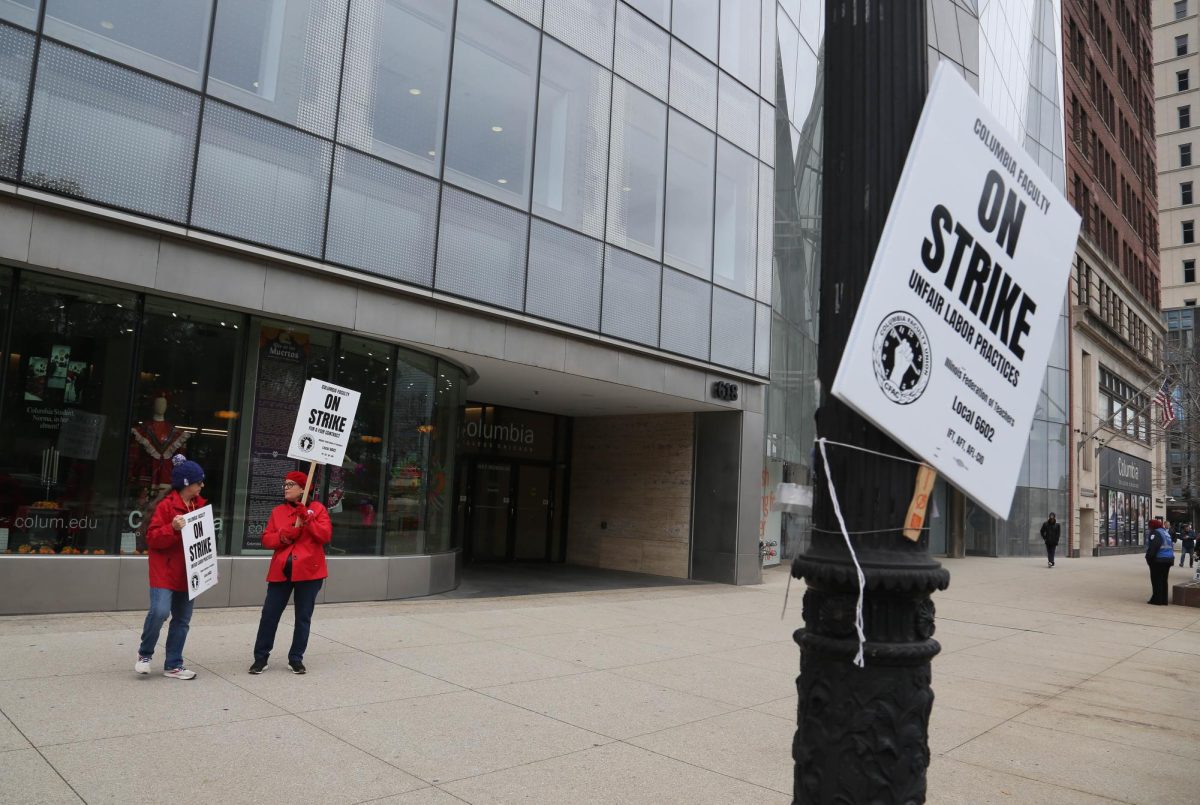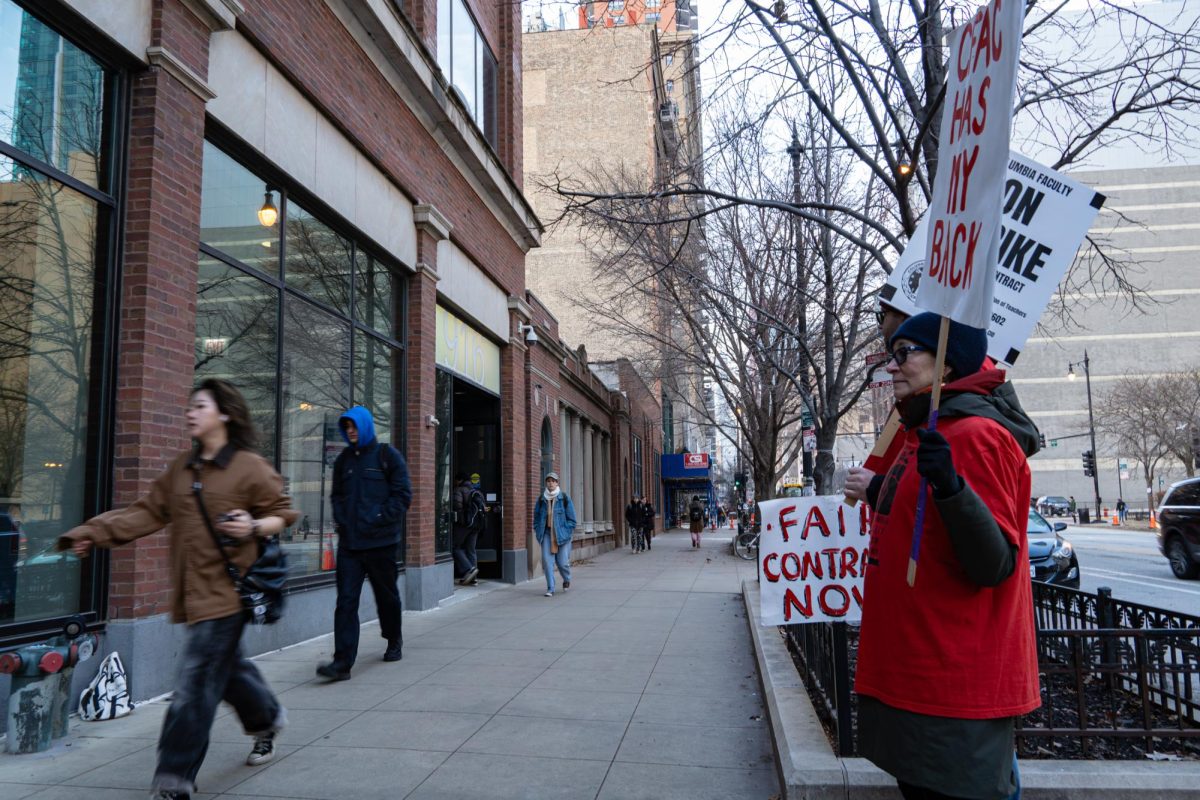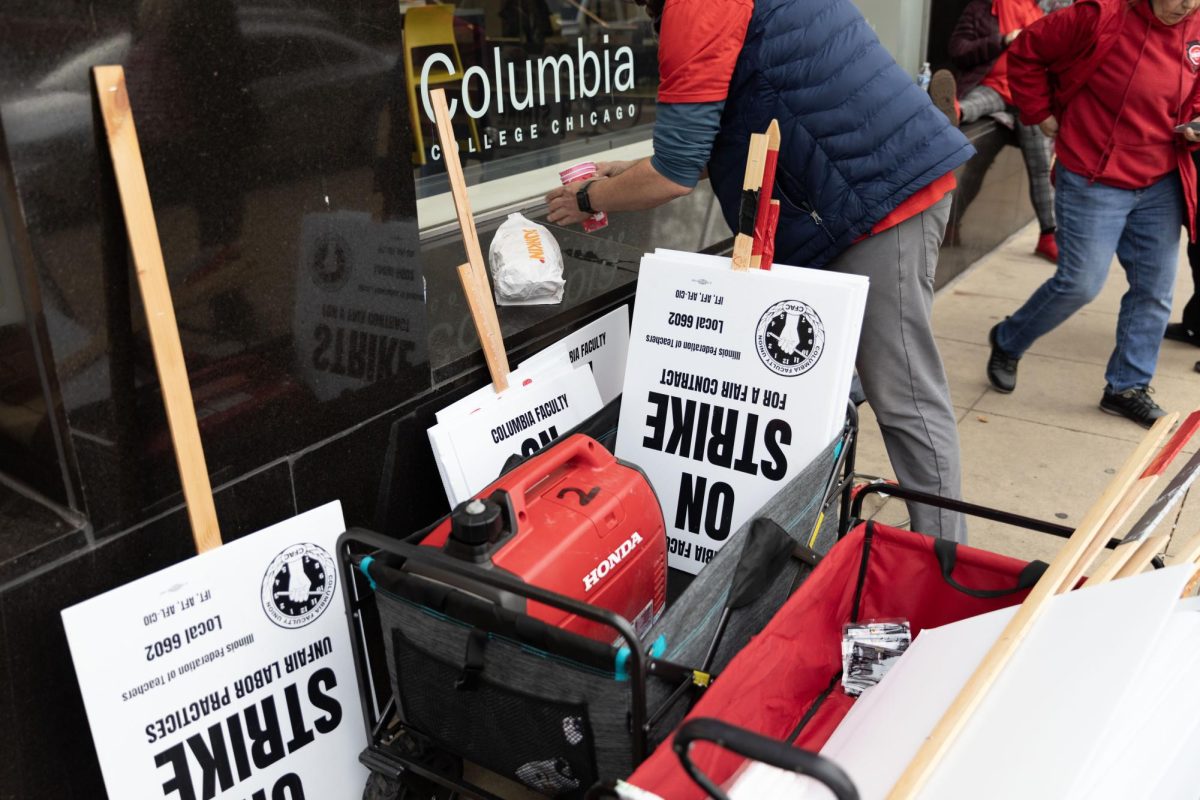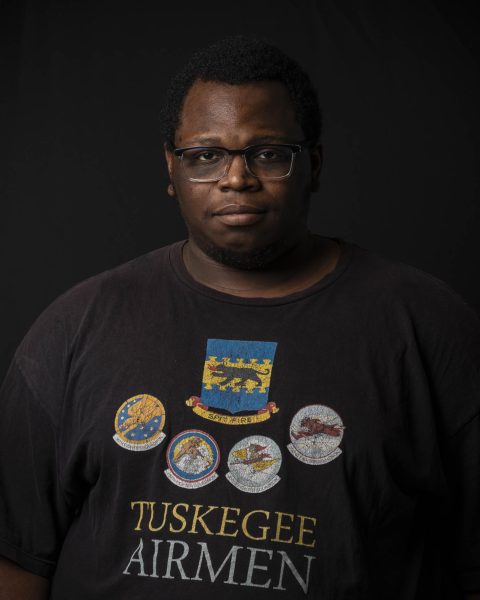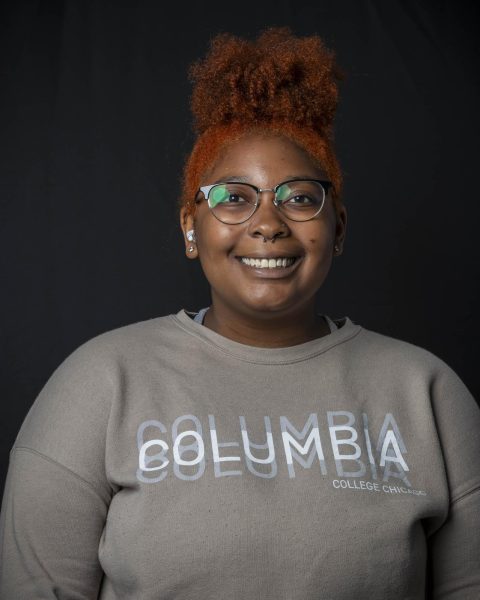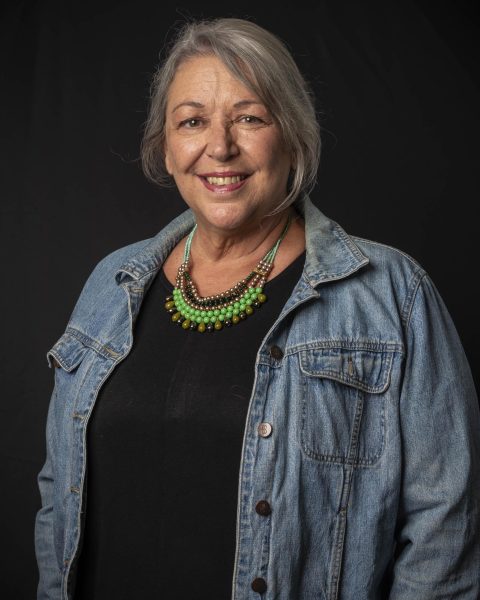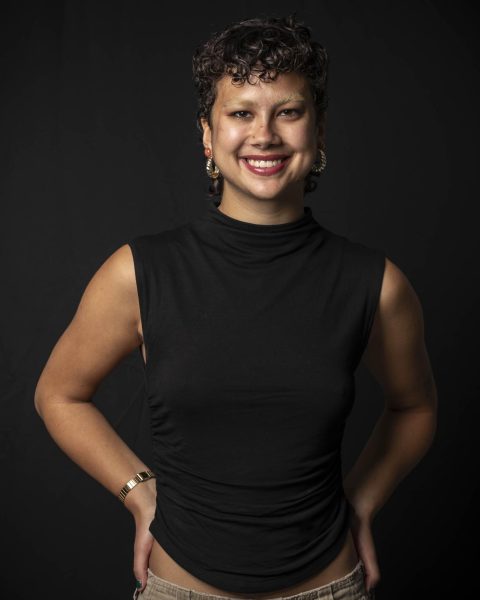As the part-time faculty union strike enters its fourth week, students started to learn the names of the full-time faculty or other substitute teachers who would be stepping in to teach their courses for the rest of the semester.
Some departments already made the formal changes in the course catalog and on Canvas over the weekend.
Yasmin Villasenor, a senior interior architecture major, said a full-time faculty member is replacing her original instructor for “Detail Studio,” a class she needs for her major.
“For our class, it made us feel more secure about what’s going on since it’s a major and mandatory class,” Villasenor said. “I’m not expecting anything over the top. He’s also readjusting himself to fit our needs as well as the program.”
Other students expressed concerns.
“I feel like I’ve adapted a certain designing skill and level that my professor before understands,” said junior illustration major Colin Kniss, referring to his part-time instructor out on strike. “I don’t know anything about this new professor coming in that’s supposed to be there for the final two weeks.”
Thanksgiving break starts Wednesday, Nov. 22. Classes resume on Monday, Nov. 27, and the semester ends on Saturday, Dec. 16.
In a weekend email, President and CEO Kwang-Wu Kim said that although the semester’s end date will not change, the deadline for instructors to enter grades will be extended from Dec. 21 to January 3, giving students additional time and flexibility to complete projects or turn in assignments. An email from the registrar’s office sent to students on Monday, Nov. 20 said faculty will be able to begin entering grades on Dec. 18.
The Columbia Faculty Union, which represented 584 part-time instructors at the start of the fall semester, went on strike on Monday, Oct. 30. It is now one of the longest adjunct teachers strikes in US history. Part-time faculty’s demands to end the strike have included health care, smaller class sizes and restoration of courses that were removed from the Spring 2024 course catalog.
“We’re in the middle of Columbia history right now,” Kniss said. “It’s not a fun time.”
On Monday, Nov. 20, the union held a press conference in front of the 600 S. Michigan building.
Union President Diana Vallera, a part-time photography instructor, said full-time faculty who are replacing striking instructors are harming the students. The union is filing two additional unfair labor practice charges. “They’re trying to steal all of our intellectual property,” Vallera said.
Some protestors referred to the replacement teachers as scabs, a derogatory term for someone who crosses a picket line during a strike. One part-time instructor used the word in calling out a replacement teacher in a comment on an Instagram account used by the union.
Columbia’s 221 full-time faculty are not unionized.
As it tries to address a $20 million deficit, Kim has said the college needs to reduce instructor costs by shifting more teaching to full-time instructors.
Full-time faculty already had expressed concern about their increased workload under that plan and asked to have more of a say in cost-cutting measures.
Some students told the Chronicle they are concerned about the quality of instruction over the next few weeks.
“I get they are from the same department at least,” said Mariana Montes De Oca, a first-year interior architecture major. “It’s just frustrating because we are being taught a certain way and for someone’s new teaching style to come in three-fourths of the way into the semester that’s left. We have three weeks left. How are they going to catch us up on work that was planned by another professor?”
Montes De Oca also said they are concerned about how much time full-time faculty will have to teach additional classes.
“They don’t have a lot of time considering the amount of classes they probably teach,” said Montes De Oca.
Several students lashed out on the Engage App to criticize the choice of their replacement instructor or the change in modality. Some courses have moved to Zoom or are now being offered asynchronously to accommodate the replacement teacher.
Susan Kerns, associate provost for Faculty Research and Development, said all replacements are being carefully considered. Full-time faculty are only stepping into classes they are qualified to teach and feel confident teaching on very short notice, she said.
“Our full-time faculty are experts in, and keep current with, their fields, giving them a depth of knowledge suitable for teaching a variety of courses,” Kerns told the Chronicle in an email. “Most also teach a substantial roster of courses, even if not every semester, which is why full-time faculty have course materials ready to go. Additionally, in many cases full-time faculty design the courses that part-time instructors teach, especially at the foundational level and for multi-section classes.”
The college also will offer students a pass/fail option for their fall semester courses but expects students to attend class after Thanksgiving break. The registrar’s office sent out a form on Monday, Nov. 20. Students have until Dec. 15 to make their selection.
Malik Lore, a senior photography major, said his “Design Lab” class taught by a part-time faculty member is being taken over by a former full-time faculty.
“I feel like we already missed a lot. So I just mostly want to finish on a good note,” he said. “I just don’t want my tuition to go to waste.”
Evelyn Aguirre, a senior interior architecture major, said they have mixed emotions about the situations but are grateful to have a substitute professor.
“It’s hard for both of us, as students and as professors stepping in,” Aguirre said. The substitute professor “has no clue what has been going on since we started the semester and now he’s trying to figure it out.”
While some students are relieved to be back in the classroom, they are still concerned with how the strike has already affected their courses this semester.
“I don’t really like the idea of how we were pushed back a lot,” said Jesus Lamas, a sophomore graphic design major. “I’m kind of 50/50 about it, mainly because at least I get to come back to my classes and since we’re already like three weeks behind on our coursework, I’m glad to be back.”
Montes De Oca said they are not getting the Columbia experience they were promised.
“I’m a Chicago-born and raised kid, and I’ve been planning to come here since I was a kid, like since fourth grade,” Montes De Oca said. “This sucks. This is not what Columbia promised it would be.”


